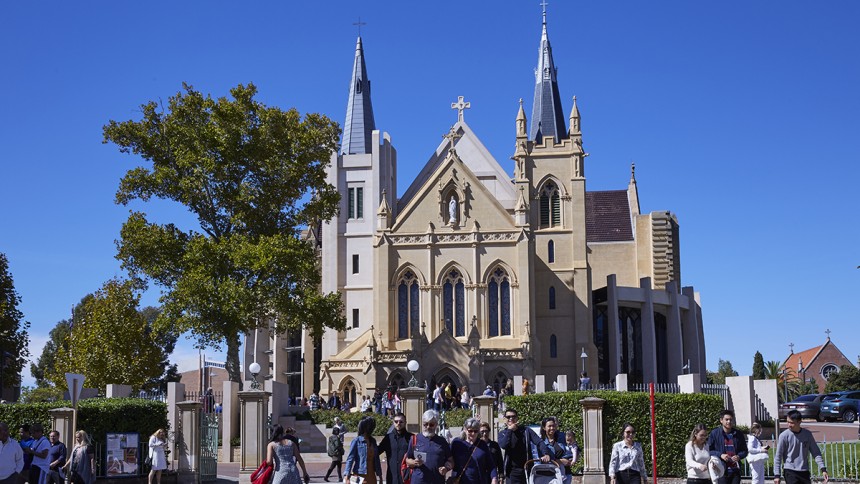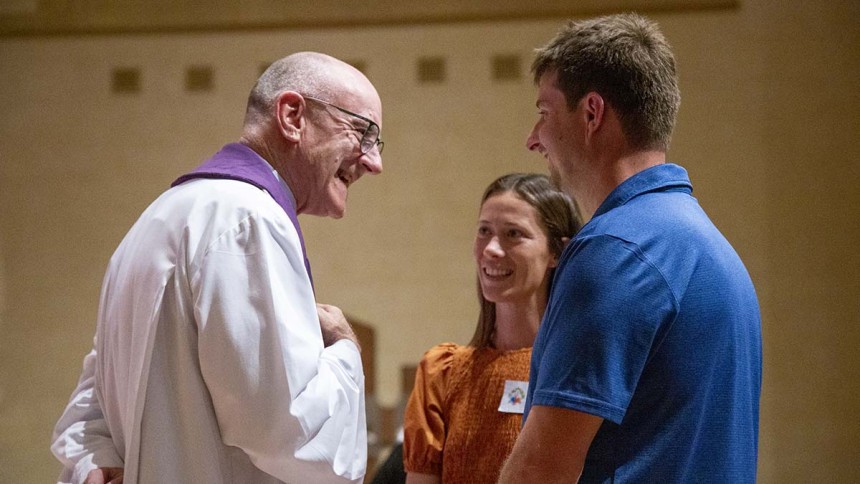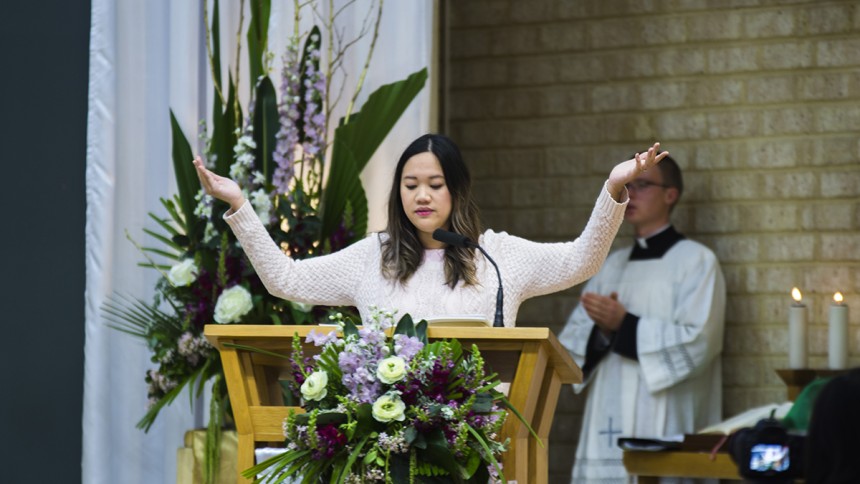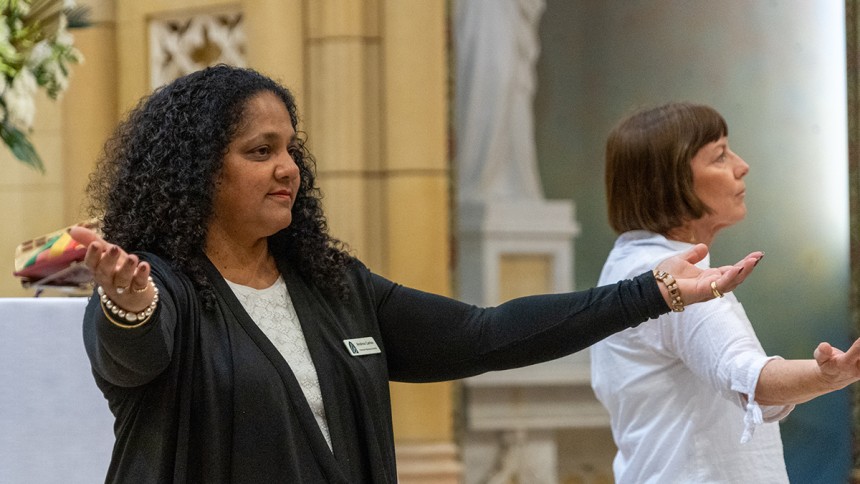
In the Archdiocese of Perth, detailed research and extensive consultation was conducted before it preceded to form its first Diocesan Pastoral Council (DPC) in 1973, but it was discontinued in the late nineties, according to an Australian historical study by Damian Gleeson, commissioned by the National Centre for Pastoral Research. Photo: Ron Tan.
The First Archdiocesan Assembly is set to be launched Trinity Sunday 4 June at St Mary’s Cathedral.
Announced by Perth Archbishop Timothy Costelloe SDB on Tuesday 11 April, will consider the re-establishment of a Diocesan Pastoral Council (DPC) and how it will reflect a synodal church, as encouraged by Pope Francis.
The journey towards the Assembly will also be highlighted in parishes across the Archdiocese with information to be distributed in the coming weeks.
The convening of the Diocesan Assembly, Archbishop Costelloe highlighted, is a relatively modest initiative, but it is designed to set a pattern for ongoing consultation and discernment using the synodal method.
“Which I hope will become a permanent feature of the life of our Archdiocese in the future,” Archbishop Costelloe expressed.
“We must continue together along the path of becoming “a synodal Church which is a listening Church, aware that listening is more than hearing. It is a reciprocal listening in which everyone has something to learn,” he said, referring to comments made by Pope Francis.
The establishment of Diocesan Pastoral Councils were highly encouraged by the Bishops of the Second Vatican Council.

Episcopal Vicar for Education and Faith Formation, the Very Rev Fr Vincent Glynn speaks with a catechumen during the Rite of Election in March this year. Photo: Jamie O’Brien.
In the Archdiocese of Perth, detailed research and extensive consultation was conducted before it preceded to form its first Diocesan Pastoral Council (DPC) in 1973, but it was discontinued in the late nineties, according to an Australian historical study by Damian Gleeson, commissioned by the National Centre for Pastoral Research.
Episcopal Vicar for Education and Faith Formation, and chair of the Diocesan Assembly Reference Committee, the Very Rev Fr Vincent Glynn, explained that a Diocesan Pastoral Council will have a pivotal role in shaping and guiding the pastoral life of the Catholic Church at the diocesan level.
Composed of clergy, religious, and laypeople, with diverse backgrounds, representing various parishes, ministries, and apostolic works within the diocese, the DPC would serve as a consultative body to the diocesan bishop, providing valuable insights, suggestions, and recommendations on matters concerning the spiritual and practical aspects of diocesan life.
“By bringing together clergy and laity, a Diocesan Pastoral Council embodies the principle of co-responsibility in the Church, acknowledging the importance of collaboration and dialogue in decision-making processes,” Fr Vincent highlighted.
“By engaging in these exchanges, council members contribute to the formulation of practical and pastorally relevant solutions that address the needs of the people in the diocese,” he said.

A member of the Personal Advocacy Service team prays during a liturgy in 2017. Fr Vincent highlighted that Diocesan Pastoral Councils also hold a vital role in facilitating pastoral renewal within the diocese. Photo: The Record.
“Through their active involvement in council meetings, members have the opportunity to pray and discern what the Holy Spirit is calling the Archdiocese to do, in communion, mission and participation,” Fr Vincent explained.
Fr Vincent concluded that Diocesan Pastoral Councils also hold a vital role in facilitating pastoral renewal within the diocese.
“By engaging in strategic planning, evaluating pastoral programs, and assessing the effectiveness of pastoral initiatives, a DPC contributes to the ongoing revitalisation of the local Church.
“It serves as a catalyst for innovation, encouraging the development of new approaches to evangelisation, catechesis, and social outreach.
“Through its collaborative efforts the DPC fosters a spirit of continuous growth, adaptability, and relevance in responding to the ever-evolving needs of all the people of the diocese,” he said.

A staff member from Personal Advocacy Service re-enacts scripture during the Catechists Commissioning Mass in 2022. Photo: Michelle Tan.
